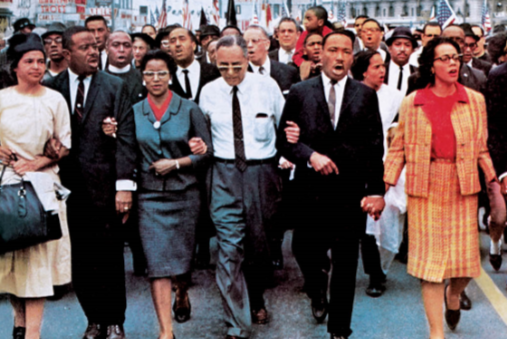
Had he lived, Dr. Martin Luther King Jr. would have turned 89 on Jan. 15. Today, we celebrate his life and legacy with cover images made available through the EBONY archives.
Take some time this MLK weekend to reflect on the life of the slain civil rights leader, documented by the photographs and words of EBONY.
November 1962

Dr. King’s first EBONY cover came in 1962, when we highlighted the reverend’s early civil rights work and placed him among fellow thinkers such as Booker T. Washington working toward a brighter future for our people.
November 1963

One year later, EBONY provided extensive coverage of the 1963 March on Washington. Some 250,000 people gathered in front of the Lincoln Memorial in Washington, D.C., for the protest at which MLK gave his famous “I Have a Dream” speech.
May 1965

EBONY continued to document the movement within the pages of its May 1965 issue, which highlighted the 1965 civil rights march from Selma to Montgomery, Alabama. In an effort to register Black voters in the South, those marching the 54-mile route from Selma to the state capital were confronted with deadly violence from local authorities and White vigilante groups. The historic march, and Martin Luther King Jr.’s participation in it, raised both awareness of the difficulties faced by Black voters and the need for a national Voting Rights Act.
May 1968

Dr. King was assassinated at the Lorraine Motel in Memphis, Tennessee, on April 4, 1968. EBONY dedicated its issue the following month to the slain leader.
April 1970

Two years after his assassination, EBONY publicized the film King: A Filmed Record … Montgomery to Memphis. The biography documented Martin Luther King Jr. and his creation and leadership of the nonviolent campaign for civil rights and social and economic justice.
November 1970

Seven months later, EBONY sat down with King’s widow, Coretta Scott King. The civil rights activist spoke to us about the passing of her husband, coping with his loss and continuing to fight for justice even after his assassination.
January 1986

EBONY continued to keep King’s name alive well into the 1980s, and the January 1986 issue included several features highlighting his contributions to social justice and a career perspective penned by Coretta Scott King.
April 2006

EBONY dedicated its April 2006 issue to Coretta Scott King, who had passed in January of that year. Among the articles was an exclusive highlighting her relationship with her husband and how their civil rights efforts helped steer the country in a more progressive direction.

Be the first to comment